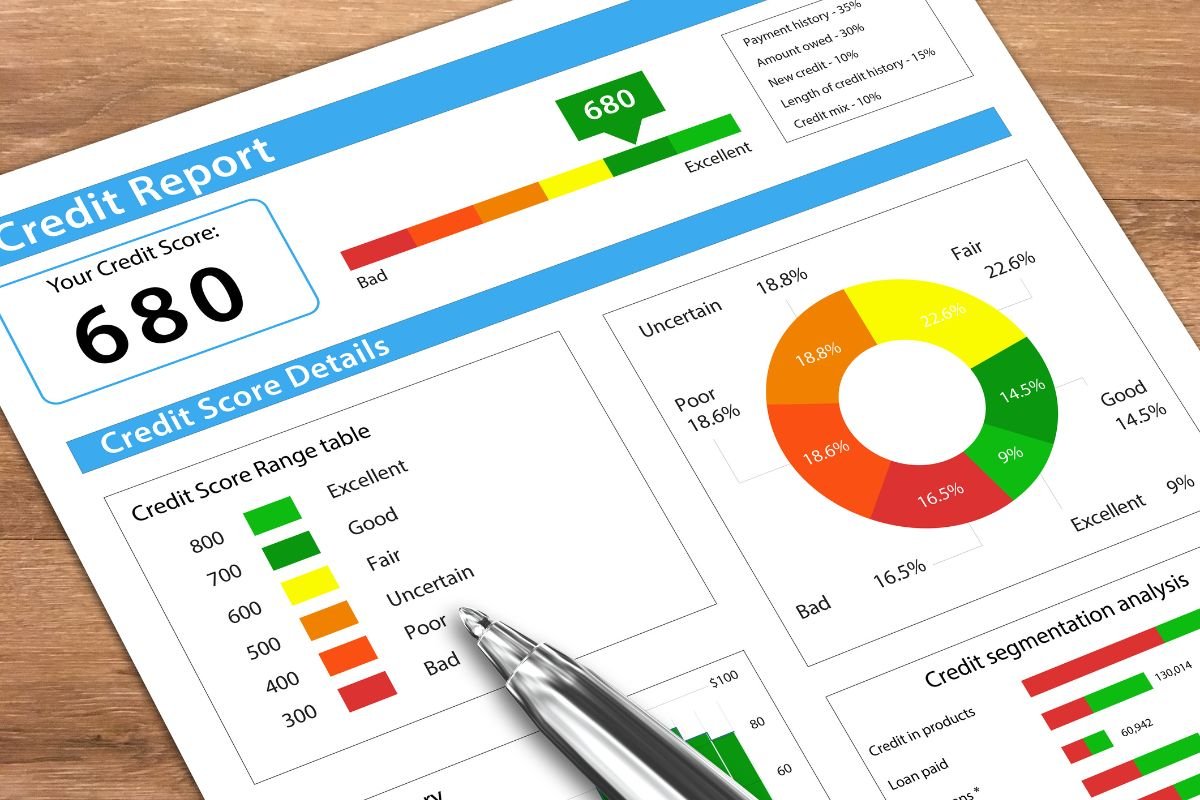Building and maintaining good credit is essential for achieving financial independence and stability. For women, credit building is not just about accessing loans or credit cards but also about creating a solid financial foundation for future goals and aspirations. Credit building strategies for women can empower them to navigate financial challenges, make informed decisions, and secure their financial future. This article delves into effective credit building strategies for women, offering practical tips and insights to help them enhance their credit profiles and achieve their financial goals.
Understanding the Importance of Credit Building
Before diving into specific credit building strategies for women, it’s crucial to understand why credit is so important. Credit scores play a significant role in determining your ability to secure loans, credit cards, and even housing or employment opportunities. A good credit score can lead to:

- Lower Interest Rates: Higher credit scores often qualify for lower interest rates on loans and credit cards, saving money over time.
- Better Loan Terms: Good credit can result in more favorable loan terms, such as higher borrowing limits and extended repayment periods.
- Increased Financial Flexibility: Strong credit provides access to a broader range of financial products and services.
- Greater Negotiating Power: With good credit, women can negotiate better deals and terms on financial products.
Credit Building Strategies for Women
1. Establish a Strong Credit History
One of the first credit building strategies for women is to establish a strong credit history. A solid credit history demonstrates your ability to manage credit responsibly. Here’s how to start:
- Open a Credit Account: Consider opening a secured credit card or becoming an authorized user on a family member’s account. This can help build credit history with minimal risk.
- Use Credit Wisely: Make small, manageable purchases on your credit card and pay off the balance in full each month. This shows responsible credit use and helps build a positive credit history.
2. Pay Bills on Time
Timely payment of bills is a fundamental aspect of credit building strategies for women. Payment history accounts for a significant portion of your credit score. To ensure timely payments:
- Set Up Reminders: Use calendar alerts or automated payment reminders to avoid missing due dates.
- Automate Payments: Consider setting up automatic payments for recurring bills to ensure they are paid on time.
3. Monitor Your Credit Reports
Regularly monitoring your credit reports is crucial for effective credit building strategies for women. By keeping an eye on your credit reports, you can:

- Check for Errors: Review your reports for inaccuracies or outdated information that could negatively impact your credit score. Dispute any errors with the credit bureaus.
- Track Progress: Monitor your credit score and report to track your progress and identify areas for improvement.
4. Manage Debt Responsibly
Effective debt management is a key component of credit building strategies for women. Managing debt responsibly can positively impact your credit score and overall financial health:
- Pay Down Existing Debt: Focus on paying off high-interest debt first, such as credit card balances. Reducing overall debt improves your credit utilization ratio and boosts your credit score.
- Avoid High Credit Utilization: Aim to use less than 30% of your credit limit on credit cards. High credit utilization can negatively affect your credit score.
5. Build a Diverse Credit Portfolio
A diverse credit portfolio can enhance your credit profile and demonstrate your ability to manage various types of credit. To build a diverse portfolio:
- Mix of Credit Accounts: Consider having a mix of credit accounts, such as credit cards, installment loans, and retail accounts. This shows that you can handle different types of credit responsibly.
- Regularly Review Your Accounts: Evaluate your credit accounts periodically to ensure they align with your financial goals and needs.
6. Avoid Opening Too Many Accounts at Once
Opening too many credit accounts within a short period can negatively impact your credit score. When considering new credit accounts, keep these tips in mind:
- Limit New Applications: Only apply for new credit when necessary and avoid making multiple applications at once.
- Understand the Impact: Each new application can result in a hard inquiry on your credit report, which may temporarily lower your credit score.
7. Use Credit Building Tools
Several tools and resources can support your credit building efforts. Utilizing these tools can enhance your credit profile and overall financial strategy:
- Credit Monitoring Services: Consider using credit monitoring services to track changes in your credit report and receive alerts about potential issues.
- Credit Building Apps: Explore credit building apps that offer features such as credit score tracking, budget management, and financial education.
8. Develop a Budget and Financial Plan
Creating a budget and financial plan is an essential part of credit building strategies for women. A well-structured budget helps manage your finances effectively and ensures timely payments:
- Track Income and Expenses: Monitor your income and expenses to understand your financial situation and identify areas for improvement.
- Set Financial Goals: Establish short-term and long-term financial goals, such as saving for emergencies or paying down debt. A clear financial plan supports responsible credit management.
9. Seek Professional Financial Advice
Seeking professional financial advice can provide valuable insights and guidance on credit building strategies for women. Financial advisors and credit counselors can help you:
- Create a Customized Plan: Develop a personalized credit building plan based on your financial situation and goals.
- Address Specific Issues: Receive expert advice on managing debt, improving credit scores, and achieving financial stability.
10. Leverage Credit Building Programs
Many organizations and financial institutions offer credit building programs designed to help individuals improve their credit profiles. Consider participating in these programs to benefit from additional support:
- Credit Builder Loans: Some banks and credit unions offer credit builder loans that help you build credit by making regular payments.
- Financial Education Workshops: Participate in workshops and seminars that provide education on credit management and financial planning.
11. Maintain Long-Term Credit Accounts
Keeping credit accounts open for a long period can positively impact your credit score. Long-term credit accounts demonstrate stability and responsible credit use:
- Avoid Closing Old Accounts: If possible, keep older credit accounts open to maintain a long credit history and improve your credit score.
- Use Accounts Regularly: Make occasional purchases on long-standing credit accounts to keep them active and maintain a positive credit history.
12. Educate Yourself About Credit
Understanding how credit works is crucial for effective credit building strategies for women. Educate yourself about credit scores, reports, and factors that impact your credit profile:
- Read Educational Materials: Access resources and guides that explain credit-related topics and strategies for improving your credit.
- Stay Informed: Keep up-to-date with changes in credit reporting and scoring models to ensure you are using the most current information in your credit building efforts.
13. Build Credit with Authorized User Status
Being added as an authorized user on a family member’s credit card can be an effective credit-building strategy. This approach allows you to benefit from the primary cardholder’s positive credit history:

- Choose a Responsible Cardholder: Ensure the primary cardholder has a strong credit history and maintains good credit habits.
- Monitor Account Activity: Regularly review account statements to ensure accurate reporting and avoid any potential issues.
14. Consider Secured Credit Cards
Secured credit cards can be a valuable tool in credit building strategies for women, especially for those new to credit or working to rebuild their credit profile:
- Deposit-Based Security: Secured credit cards require a security deposit that serves as collateral, making them accessible to individuals with limited credit history.
- Build Credit Over Time: Responsible use of a secured credit card can help build a positive credit history and improve your credit score.
15. Practice Financial Discipline
Finally, practicing financial discipline is a cornerstone of successful credit building strategies for women. Developing good financial habits ensures that you manage credit responsibly and achieve your financial goals:
- Avoid Unnecessary Debt: Be mindful of your spending and avoid taking on unnecessary debt that can strain your finances and negatively impact your credit score.
- Regularly Review Financial Goals: Periodically assess your financial goals and progress to stay on track with your credit-building efforts.
Conclusion
Credit-building strategies for women are essential for achieving financial independence and stability. By implementing these strategies, women can enhance their credit profiles, access better financial products, and create a solid foundation for future financial success. From establishing a strong credit history to managing debt responsibly and leveraging credit building tools, these strategies empower women to take control of their financial futures. As women continue to make strides in financial empowerment, adopting effective credit building strategies is a crucial step toward achieving long-term financial well-being and independence.








